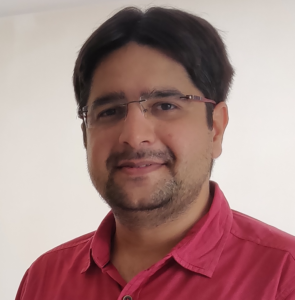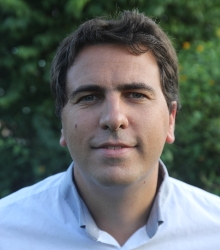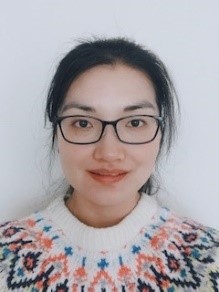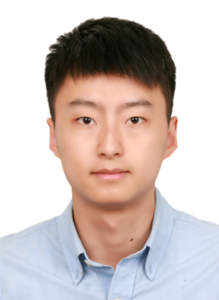Invited Session:Approaches and Methods for Monitoring and Management of Edge Computing Systems and Networks
Title:Digital Twin Edge Networks
Abstract:In this talk, we mainly introduce our proposed new research direction: Digital Twin Edge Networks (DITEN). We first present the concept and model related to Digital Twin and DITEN. Then, we focus on new research challenges and results related to DITEN. Edge association and Digital Twin mobility, as unique research questions, will be defined and analyzed. We are also expecting that the talk will help the audience understand the future development of edge computing, e.g., digital twin edge networks in the context of Metaverse.
Biography:
Yan Zhang is currently a Full Professor with the Department of Informatics, University of Oslo, Norway. His research interests include next-generation wireless networks leading to 6G, green and secure cyber-physical systems. Dr. Zhang is an Editor (or Area Editor, Senior Editor, Associate Editor) for several IEEE transactions/magazine, including IEEE Network Magazine, IEEE Transactions on Green Communications and Networking, IEEE Transactions on Network Science and Engineering, IEEE Transactions on Vehicular Technology, IEEE Transactions on Industrial Informatics, IEEE Internet of Things Journal, IEEE Systems Journal, IEEE Vehicular Technology Magazine, and IEEE Blockchain Technical Briefs. He is a program/symposium chair in a number of conferences, including IEEE IWQoS 2022, IEEE ICC 2021, IEEE SmartGridComm 2021. He is the Chair of IEEE Communications Society Technical Committee on Green Communications and Computing (TCGCC). He is an IEEE Communications Society Distinguished Lecturer and IEEE Vehicular Technology Society Distinguished Speaker. He was an IEEE Vehicular Technology Society Distinguished Lecturer during 2016-2020. Since 2018, Prof. Zhang was a recipient of the global “Highly Cited Researcher” Award (Web of Science top 1% most cited worldwide) for four years. He is Fellow of IEEE, Fellow of IET, elected member of Academia Europaea (MAE), elected member of the Royal Norwegian Society of Sciences and Letters (DKNVS), and elected member of Norwegian Academy of Technological Sciences (NTVA).
Title: Harnessing Programmable Networks for Scalability and Performance
Abstract: Programmable networks, consisting of a set of network devices that can be programmed using a domain-specific language, which allow programmers to easily customize all aspects of the network, ranging from routing, congestion control and more, brought huge opportunities to improve existing networking features and also allow many new possible use cases. This talk introduces new types of programmable network hardware, unique characteristics of each type of hardware and software that allow programmers to easily interact with the hardware and easily deploy new types of applications on the hardware at a large scale with significant performance gains.
Biography:
Sean Choi is an assistant professor in the computer science and engineering department at Santa Clara University. Sean completed a Ph.D. in electrical engineering and M.S. degree in computer science at Stanford University and B.S. degree in computer science and business economics and management at California Institute of Technology. He has industry experience working at LinkedIn as a machine learning engineer, VMware as a senior member of technical staff, Facebook as a network research engineer and consulting for many startups. His current research work is about adding programmability to network switches and network interface cards (NIC) and finding new applications to take advantage of the newly available programmable hardware to greatly improve their performance and reduce overheads.
Title: Leveraging Machine Learning for Spectrum Sharing in Wireless Networks
Abstract: With increasing dependence on wireless technologies, e.g., not only during the current pandemic but also with the envisioned smart cities or smart agriculture, ensuring efficient use of the wireless spectrum and having a profound understanding of its spatio-temporal usage dynamics have become more crucial. As machine learning has unlocked many possibilities in various domains, a natural question is whether ML-based approaches can introduce improvements also for spectrum sharing over the traditional schemes. In this talk, we will overview some state-of-the-art approaches that illustrate the potential of ML toward the goal of improving spectrum utilization efficiency and more accurate spectrum analysis.
Biography:
Suzan Bayhan is an assistant professor at the University of Twente and an adjunct professor (docent) at the University of Helsinki. She earned her Ph.D. in computer engineering in 2012 from Bogazici University. She received the best paper awards at ACM ICN ’15 and IEEE WoWMoM ’20, and best demo award at IEEE INFOCOM ’20. Her current research interests include spectrum sharing, coexistence of wireless networks, WiFi and LTE resource management, and edge computing.
Title: System-Level Optimization for Applied Machine Learning
Abstract: Machine learning (ML) techniques for applications have been widely studied from the algorithmic level; however, these applications can take effects only when they can be deployed to computing devices. This raises new challenges and we need to identify the unique requirements from various applications, and provide automation solutions to build the system on especially the resource constrained computing devices. In this talk, I will introduce the road from the Hardware/Software co-design to the systematical optimizations for real-world applications, then the next.
Biography:
Lei Yang is an Assistant Professor with the Department of Electrical Computer Engineering, University of New Mexico, Albuquerque, NM, USA. She received the B.E. and Ph.D. degrees from Chongqing University, Chongqing, China, in 2013 and 2019, respectively. Her research interests are in automated machine learning, embedded systems, and high-performance computing architectures.
Invited Session on New IP I
Title: An Introduction to New IP
Abstract: Many new applications enabled by 5G/B5G/6G require new features and new capabilities for the network protocols. In this talk we start with future trends and market drivers, identify their requirements, and analyze the technical gaps. In particular, we will discuss the following use cases: integration of spatial (non-terrestrial) networks and terrestrial networks, OT Networks (Operational Technology Networks) such as Industrial Networks for manufacturing and control, Cloud Driving (Remote Driving, Tele-driving), and Holographic Type Communications. From many use cases we conclude that the future networking protocols need to evolve along three dimensions: (1) omni-convergence; (2) KPI guarantee; (3) social sustainability. In order to meet requirements from these three dimensions, we discuss a new network protocol design, called New IP. In particular I we discuss (1) A free-choice addressing mechanism to connect and converge various vertical communication networks; (2) A contract mechanism for application KPI and sender’s intent in business critical and life critical applications; (3) Qualitative Communication mechanism for volumetric holographic type communications; (4) Green Internet support and energy consumption reduction in routers/switches. New IP is being developed by extending IPv4/IPv6 to enlarge and improve the Internet so that emerging and future applications will be supported and implemented.
Biography:
Dr. Richard Li is Chief Scientist and Vice President of Network Technologies at Futurewei, USA. Richard served as the Chairman of the ITU-T FG Network 2030 from 2018 to 2020, and as the Vice Chairman of the Europe ETSI ISG NGP (Next-Generation Protocols) from 2016 to 2019. He has also served as Co-Chairs of steering committees and technical program committees of some academic and industrial conferences. Richard is extremely passionate about advancing ICT infrastructure technologies and solving problems in their entirety, thus creating a bigger and long-term impact on the networking industry. During his career, Richard spearheaded network technology innovation and development in Routing and MPLS, Mobile Backhaul, Metro and Core Networks, Data Center, Cloud and Virtualization. Currently he leads a team of scientists and engineers to develop technologies for next-generation network architectures, protocols, algorithms, and systems in the support of emerging and forward-looking applications and industry verticals in the context of New IP, Network 2030, and 5G/B5G/6G.
Dr. Lijun Dong is a Principal Research Engineer at Futurewei Technologies, USA. She has broad and in-depth research in the areas of Internet of Things, Machine-to-Machine communications, Information-Centric Networking and Future Internet Architecture for more than a decade. She is one of the voting members of ComSoc Industry Communities Board (2022-2023). She was one of the board members of the WOCC conference 2017-2018. She won Futurewei President Awards in 2020, InterDigital Innovation’s Awards in 2013, travel grant of Globecom 2009. She received best paper awards in WOCC 2018, AFIN 2018, Internet 2021. She has been an active and influential contributor, and responsible for internal strategy development and execution for standards, including oneM2M, IETF, 3GPP and ITU. She is the major inventor to 100+ granted patents. She has 60+ publications and several book chapters.
Invited Session on New IP II
Title: Programmable Data Plane for New IP using eXpress Data Path (XDP) in Linux
Abstract: This talk will present a new dimension in packet programming and processing by leveraging New IP technology since applications are sensitive to different types of network constraints. For instance, emerging industry operations, manufacturing, and autonomics are limited by the stochastic quality of services and inflexible address structures. Instead, they require efficiency and deterministic networks. In this talk, we demonstrate a programmable data plane for New IP packet processing and show how network headers could evolve in the future. We discuss the implementation of New IP stack to encompass three goals: (1) address customization: applications and routers can forward packets between hosts with different address formats. (2) design an end-to-end model to meet service delivery guarantees: routers implement various in-network New IP contracts as described by the applications. (3) Rapid experimentation of the New IP components. With New IP, developers can describe packet processing functionalities without depending on the specifics of the underlying hardware. Our implementation of the New IP stack uses the existing toolsets and capabilities of the Linux platform, such as eXpress Data Path (XDP) and Traffic Control (TC) subsystem. It consists of an end-to-end solution with a new network stack on the host side and a corresponding packet processing and forwarding engine on the network. It is validated using Network Stack Tester (NeST), a lightweight tool built on Linux network namespaces.
Biography:
 Mohit P. Tahiliani is a faculty of Computer Science and Engineering at NITK Surathkal, Mangalore, India. He is a Member of the Steering Committee of ns-3 network simulator and is a co-maintainer of TCP and traffic-control modules in ns-3. He works on TCP optimizations, Linux queue disciplines and Wi-Fi rate adaptation. Mohit and his students have developed Network Stack Tester (NeST), an open-source Python package that simplifies the process of performing networking experiments by using Linux network namespaces which is the foundation to the New IP sandbox that will be discussed in his talk. This work is an academic effort. Mohit served as architect and mentor to the students who developed the code.
Mohit P. Tahiliani is a faculty of Computer Science and Engineering at NITK Surathkal, Mangalore, India. He is a Member of the Steering Committee of ns-3 network simulator and is a co-maintainer of TCP and traffic-control modules in ns-3. He works on TCP optimizations, Linux queue disciplines and Wi-Fi rate adaptation. Mohit and his students have developed Network Stack Tester (NeST), an open-source Python package that simplifies the process of performing networking experiments by using Linux network namespaces which is the foundation to the New IP sandbox that will be discussed in his talk. This work is an academic effort. Mohit served as architect and mentor to the students who developed the code.
Title: CGM2: Carrier-Grade Minimalism Multicast with Stateless Explicit Path
Abstract: Group communication is a communication pattern where data is distributed from one sender to many receivers. It is widely applied in content distribution scenarios, such as IPTV, live streaming, video conference, data delivery, and others. Multicast is an efficient one-to-many data distribution method. However, application-layer multicast still has problems of inefficient network utilization as it is not allowed to control network elements. Existing network assisted multicast is unable to meet the newly emerging demand, such as multicast traffic engineering and load balancing. Some implementations of network assisted multicast are also limited to scalability issues caused by limitations of per-flow state maintained in network elements. In this paper, we introduce a novel multicast technology called Carrier-Grade Minimalism Multicast (CGM2) which leverages a string of bits, the bitmap, to instruct node to locally duplicate packets and forward them over several links without per-flow state and encapsulates bitmaps as binary in-packet tree for explicit forwarding path.
Biography:
Junjie Wan received the MS degree in information science from the University of North Carolina at Chapel Hill, USA, in 2017. He is currently a senior engineer of Network Technology Laboratory at Huawei, China. His research interests include network architecture, routing protocol and network service.
Title: The Effects of Packet Wash on SVC Video in Limited Bandwidth Environments
Abstract: This paper describes the effects of the Packet Wash process on the transmission of layered SVC video streams. We show how the packet size is adapted when using a number of different packing strategies, that map the video data into the BPP packets, and discuss the relationship between the packing strategies on the sender side and the chunk removal in the washing process. We demonstrate how the packing strategy causes different impacts on the number of and the sizes of the washed chunks. As the bandwidth reduces, more of the chunks in a packet get washed away. Although the receiver gets packets that are much smaller than those transmitted by the sender, it is still able to play video with a high QoE as zero packets are dropped. This traffic engineering enables a direct implementation of an in-network video adaption scheme. The experimental evaluation highlights that the effects of Packet Wash become more obvious in environments where there is limited bandwidth.
Biography:
Stuart Clayman received his PhD in Computer Science from University College London in 1994. He is currently a Principal Research Fellow at UCL EEE department, and he has worked as a Research Lecturer at Kingston University and at UCL. He co-authored over 60 conference and journal papers. His research interests and expertise lie in the areas of software engineering and programming paradigms; distributed systems; virtualised compute and network systems, network and systems management; digital media; sensor systems and smart city platforms, and artificial intelligence systems. He is looking at new techniques for large-scale sensor systems in Industry 4.0, and at end-to-end systems for Computational Genomics. He also has extensive experience in the commercial arena undertaking architecture and development for software engineering, distributed systems and networking systems.
Title: Enabling Advanced In-Network Processing in Programmable Network Dataplanes with P4: Experiences, Challenges and Lessons learned
Abstract: Recently, network softwarization empowers the paradigm of programmable networks where network functions or even tasks of these functions can be programmed with high flexibility to fit user or operator needs independently of hardware used. Programming network data-plane allows to program the processing of each packet and is supported by novel technologies like P4. A main advantage of programmable data-planes is to deploy custom functions such as monitoring, in-band network telemetry, attack detection and counter-measures within network switches.
In a nutshell, we can count on programmable dataplanes to setup custom in-network processing to enable new or more efficient applications by allowing programming specific packet processing at each network hop. However, P4 and P4-compatible hardware come also with limitations. Implementing any function is unfeasible. In this talk, we will review some applications to implement some functions (detection of multi-steps attacks, monitoring of DNS requests, in-band telemetry, etc) and highlight the main difficulties we face and also the remaining challenges. This notably includes computation of real-valued functions, handling TLV fields or stateful processing, etc.
Biography:
 Dr. Jérôme FRANCOIS obtained his Ph.D. in Computer Science from the University of Lorraine, France in December 2009. He was then appointed as research associate at the University of Luxembourg. He is now research scientist at Inria and deputy leader of the RESIST team. His main research areas are focused on the use of data analytics techniques for security and also its coupling with network softwarization. In 2019, he received the IEEE Young Professional award in Network and Service Management. He is also co-funder of Cybi, a startup developing AI-based cybersecurity solutions. He is in charge of different international collaborations of the research team with the University of Waterloo in Canada, the DFKI in Germany and Osaka Metropolitan University. He has participated in several collaborative European projects and was the project coordinator of ThreatPredict, a NATO-funded project on cyberthreat monitoring. In addition to major publications in networking and network management conferences, he started as associate Editor-in-Chief of Wiley IJNM and as co-chair of NMRG at IRTF (Internet Research Task Force) in 2019.
Dr. Jérôme FRANCOIS obtained his Ph.D. in Computer Science from the University of Lorraine, France in December 2009. He was then appointed as research associate at the University of Luxembourg. He is now research scientist at Inria and deputy leader of the RESIST team. His main research areas are focused on the use of data analytics techniques for security and also its coupling with network softwarization. In 2019, he received the IEEE Young Professional award in Network and Service Management. He is also co-funder of Cybi, a startup developing AI-based cybersecurity solutions. He is in charge of different international collaborations of the research team with the University of Waterloo in Canada, the DFKI in Germany and Osaka Metropolitan University. He has participated in several collaborative European projects and was the project coordinator of ThreatPredict, a NATO-funded project on cyberthreat monitoring. In addition to major publications in networking and network management conferences, he started as associate Editor-in-Chief of Wiley IJNM and as co-chair of NMRG at IRTF (Internet Research Task Force) in 2019.






